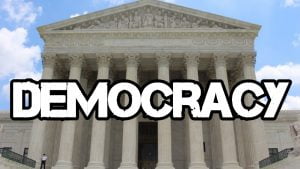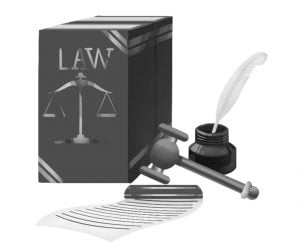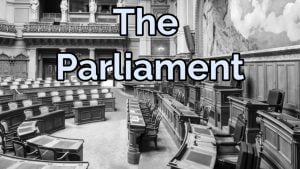Main Types of democracy: Democracy is a form of government among the major existing forms of government which is seen as generally acceptable and superior to other forms of government. It has been traced back to ancient Greece as the word was formed from two independent Greek words being “Demo” and “Kratia” which respectively mean people and government. The two greek words above were joined to form the word democracy and this is seen in the reference by Abraham Lincoln to the simplest and most common definition of democracy being that; democracy is the government of the people for the people and by the people.

While there is no generally accepted definition of democracy, it is a system of government where the people directly or indirectly determines major matters in the state, the people reign supreme, they are sovereign and they independently select their leaders through periodic, free and fair elections. Here, the words of the people as against that of a few in power holds water in deciding the affairs of the State. There must exist popular participation and interest and the government revolves around the chief principles of legitimacy, justice, freedom and power of the people.
Recommended: Major pillars of a democratic government
Characteristics of Democracy
a. Legitimacy: A legitimate government is one put in place, accepted and recognized by the people, it is a major feature of a democratic system of government that power vests in the people of the state. Therefore, a government in place without the approval of the people is not a legitimate government and as such cannot claim to be a democracy.

b. Rule of law: As defined by A.V Dicey, the rule of law is the supremacy of the law of a state over every citizen or any other person residing in that state, this means that nobody is above the law no matter his status in the society. This is important in a democracy especially a representative democracy to act as a form of check and balance in the powers of the elected representatives so that they do not develop any illusions of being better than the people who elected and thereby empowered them.
Also see: Advantages and Disadvantages of Democracy

c. Public opinion: public opinion has to do with the aggregate of the individual point of view as regards a particular matter by a significant population of a community or state as the case may be. Since democracy is a government of the people, the opinion of the said people cannot be overemphasized in determining issues in the government that will be to their benefit or detriment.
d. Periodic and transparent elections: For the people to be an active part of their government especially in a representative democracy, provisions must be made for a periodic, free and fair election which will be conducted after sufficient political education to the people so as to aid them in making informed choices in electing their representatives at the poll on the election day.
e. Separation of powers: In a direct democracy, the decision resides in every member of the community and in the representative democracy where the people elect leaders to handle the affairs of the state, there is separation of powers into different arms of government so as to allow for necessary checks and balances in the powers and administration of the separate arms of government.
f. Fundamental human right: In a democracy, the fundamental human rights of the citizens like right to life, right to fair hearing, right to dignity of the human person, right to personal liberty and others must be upheld according to the constitution of such country based on the major constituent of democracy which is the people.
Recommended: 10 Major Features/Characteristics of Democracy
Top 6 Major Forms/Types of Democracy
The types of democracy are classified based on the level of participation of the people in their government. There are generally two broad classifications of democracy and these are direct democracy and indirect or representative democracy.

1. Direct democracy: direct democracy is a form of democracy which involves individual participation of every eligible citizen in the processes of government. This form of democracy works easily in a small communities where all members of the community can come together to sit upon matters arising in their political arena, the opinion of every single member is put into consideration before a conclusion can be reached.
This form of democracy was practiced in ancient Athens where the citizens came together periodically to deliberate on matters of the state and come up with the way forward. Citizens as used above refers to only male citizens who had attained military age to the exception of women, servants or slaves, foreigners and children. In recent times, a form of direct democracy is in practice in Switzerland.
Also see: Reasons why democracy is considered the best system of government
2. Representative or indirect democracy: this is a form of democracy where the the affairs of the state is carried on by representatives elected by the general public through application of the universal adult suffrage i.e the sovereignty resides in the representatives and not with the people.

3. Parliamentary democracy: this is a form of an indirect democracy where the legislative arm of the government usually headed by the prime minister the head of state who possesses most of the state powers. This system is common in the United Kingdom with Britain as an instance.
4. Presidential democracy: this is a form of representative democracy whereby the people elect a leader, the President in a free and fair election to be at the helm of affairs. The President is the head of government and the head of state who leads in executive capacity independent of the legislative arm of government.

Also see: Countries in the world with an unwritten Constitution
5. Elite democracy: this is also known as authoritarian democracy because the government is not really in the hands of the people. This system is called a democracy because it adopts some salient features of democracy like periodic elections, seperation of powers, and others but the political power resides in the elite group of the society who are usually well educated and wealthy as well.
6. Pluralist democracy: this exists in relation to representative democracy. The pluralist democracy is one under which various political parties and groups exist who are all eligible and engage in competition of passing the most accepted opinion in the government i.e, they compete to influence policies.
Recommended: Differences between Totalitarianism and Authoritarianism
Conclusion
There are various forms of government in practice around the world today, whether documented or not, each with their own merits and demerits. At the same time, most countries combine more than one of the various existent forms of government hence the plethora of the forms of democracy which are all related to the direct and indirect democratic systems. Democracy with its essential policy of the people first can never go wrong.
There should be wide political education to the masses and the leaders so as the help them understand the importance of their participation in the government of their state.
Countries that are deemed to be democracies should be encouraged and guided to return to the books on democracy, to help them understand the important components of the system of government they claim to be operating under. After re-learning the principles of democracy, operative machinery for the prompt execution of such instructives is to be immediately commissioned for work.

Edeh Samuel Chukwuemeka, ACMC, is a lawyer and a certified mediator/conciliator in Nigeria. He is also a developer with knowledge in various programming languages. Samuel is determined to leverage his skills in technology, SEO, and legal practice to revolutionize the legal profession worldwide by creating web and mobile applications that simplify legal research. Sam is also passionate about educating and providing valuable information to people.
This website is a good website so let’s keep it up